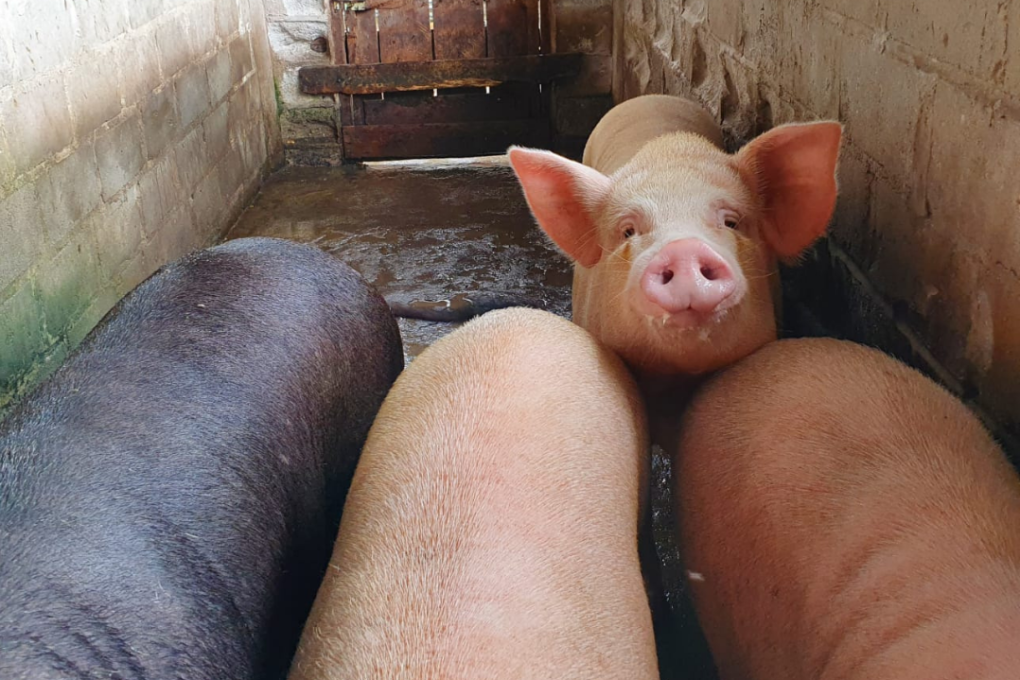This Indonesian sanctuary is changing minds on animal rights, one pig at a time
- In Indonesia, where animal rights is a relatively new concept, the Sehati Animal Sanctuary on Sumatra island is unique
- Set up by a couple who pawned their jewellery to save farm animals from the chop, its mission is to speak up for living beings that lack a voice

When Indonesians hear the term “animal sanctuary”, they usually imagine a place where animals classified as endangered species live. Animal shelters for stray cats and dogs also exist in the country, but are usually privately run by animal lovers.
What is almost unheard of, however, is a sanctuary for rescued farmed animals, such as the Sehati Animal Sanctuary, in the city of Dumai on the eastern coast of the island of Sumatra.
Thought to be the country’s first and only sanctuary for farmed animals, Sehati occupies around 3.3 hectares (8.2 acres) of land on which almost 300 animals – mostly chickens, goats, rabbits and sheep, plus a few stray cats and dogs – will spend the rest of their lives, free from economic exploitation and physical abuse.
Founded in 2017 by husband and wife, Loo Shih Loong, 46, and Liong Sing Hui, 43, using their life savings, Sehati was not a planned venture.

“In 2014 I came back from Malaysia to Dumai to care for my ailing mother who passed away two years later,” Liong said. “I was so grief-stricken that my uncle, a pig farmer, gave me three piglets to keep me company. A few months later, when the piglets were grown, he wanted them back, to be sold, and it was then I realised I had bonded with them. So I refused to give them up.”